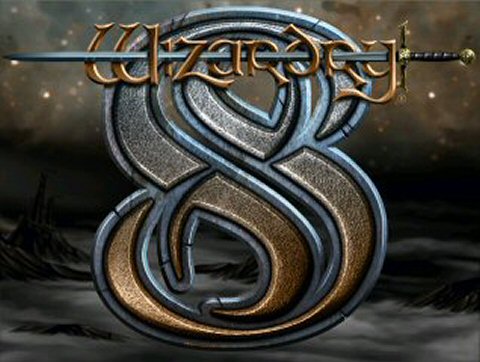
Wizardry 8— Attributes
In this section, I include the in-game descriptions of each statistic (denoted by  ), followed by my personal opinions about the attribute's use (
), followed by my personal opinions about the attribute's use (). When I call one attribute "primary", I mean that generally, when playing certain classes I max out these one or two stats at 100 first, giving them 2 or 3 points in these stats with each level up. A "secondary" attribute, naturally, is one I would generally focus on next. These, of course, are only my suggestions and I have been known to diverge from these suggestions, especially when I create themed characters. A statistic that I term "perfect" is one that is increased to 100.
Strength
 — Affects any maneuver that requires physical strength, from hitting creatures to the damage done. Strength also influences most weapons skills, carrying capacity and stamina.
— Affects any maneuver that requires physical strength, from hitting creatures to the damage done. Strength also influences most weapons skills, carrying capacity and stamina.
— A "no-brainer" stat (pun marginally intended); this attribute increases the damage dished out by physical attacks. Any martial character can benefit from the extra damage, and the ability to carry items (and hence the ability to wear heavier armor without being encumbered). Weapons skills are learned more frequently by strong characters. Perfect Strength offers the chance to study Power Strike- greatly enhancing the chances to hit and penetrate opponents in melee combat.
Fighters, Lords, Samurais and Gadgeteers are characters who I most often focus on Strength primarily. Gadgeteers might seem a strange choice, but unless you want to have your party geek to be overloaded with gadgets (and gadgets in the late game are heavy), I suggest spending at least 2 points per level on Strength. If you decide to have your Monk focus on Strength (think RFS-81) you can have a perfect unarmed fighting machine!
Intelligence
 — Affects a character's performance in mental tasks such as music, artifacts, engineering, communication, close and ranged combat, mythology, all forms and schools of magic except Divinity and a character's skill with locks and traps.
— Affects a character's performance in mental tasks such as music, artifacts, engineering, communication, close and ranged combat, mythology, all forms and schools of magic except Divinity and a character's skill with locks and traps.
— It is hard to stress the importance of this attribute for just about any character, excepting the pure bashers. That said, even pure bashers can benefit from a keen mind as they study the finer points of battle tactics. Intelligence affects the frequency of learning such a wide variety of skills that it is difficult to ignore it. The real bonus gleaned from high intellect, however, is realized by those spellcasters who have reached 100 in it: the Power Cast skill. These spellcasters are much more effective with all spells.
No Mage, Bishop, Alchemist, or Psionic should be wanting for intelligence; this skill is almost non-negotiably primary for them. Depending on how much you plan to focus on spellcasting for hybrid characters, Samurais and Monks also can make good use of it, but I usually consider Intelligence secondary for them. Street-smart Rogues and Ninjas will be more effective burglers, making them less likely recipients of the Darwin Award. Smarter Bards can learn the intricacies of their instruments quicker, and I usually give them 1 to 2 points a level until it reaches at least 80. Gadgeteers with a higher geek-factor work more impressive technical wizardry with higher intelligence, and I often give them an average of 2 points a level for them until the stat reaches 90.
Piety
 — Affects a character's magic realm skills and heavily influences Divinity. Piety also affects the amount of spell power a character gets when he gains levels as well as a character's overall stamina.
— Affects a character's magic realm skills and heavily influences Divinity. Piety also affects the amount of spell power a character gets when he gains levels as well as a character's overall stamina.
— The devoted spellcaster has a greater reserve of mana to pull from when casting spells. They also are more effective at casting any spell, since a character's ability to learn about all six elemental realms is influenced by Piety. Lastly, any character can benefit if they attain to perfect Piety, since the Iron Will skill will grant them a natural resistance to anything that would make them unhealthy.
Priests are the only character to which Piety is absolutely non-negotiable, because of their complete reliance on Divinity spells. However, any primary magic-user can benefit greatly if they consider Piety of primary importance, due to the elemental skill bonuses and higher mana points. A personal preference of mine is to give my Lords at least 1 point of Piety per level early, and attempt to reach 100 Piety by level 16-18, especially if I am playing that Lord more as a defender than an attacker; the Iron Will skill is perfect for such a character.
Vitality
 — Affects the amount of hit points, stamina and carrying capacity a character receives, as well as and the likelihood of succumbing to disease.
— Affects the amount of hit points, stamina and carrying capacity a character receives, as well as and the likelihood of succumbing to disease.
— Insert obvious statement here-> A healthier character is less likely to die. They tire less quickly and can carry a heavier load. They can fight off infection. The toughest characters can even shrug off damage due to their high constitution; this is known as the Iron Skin skill.
There are few characters for which I consider Vitality a primary statistic, simply because it does not contribute to the learning of any skill. In the end game, most characters are not likely to die due to wounds; it is the instant death attack that is most often the cause of death (and I am not sure whether Vitality plays a part in protecting characters from instant death attacks). However, Gadgeteers, Bards, and characters that are heavily armored (Fighters, Lords, and Valkyries) can benefit from the extra carrying capacity; these characters should not totally ignore the stat.
Speed
 — Affects the initiative in combat, the number of swings per attack and the number of attacks per turn. Speed also influences some combat skills. At very high or very low levels, speed can also affect a character's armor class.
— Affects the initiative in combat, the number of swings per attack and the number of attacks per turn. Speed also influences some combat skills. At very high or very low levels, speed can also affect a character's armor class.
— Any character can benefit from Speed because of the initiative bonuses in combat that the speedy receive. Frontline fighters will find that the damage the deal is multiplied significantly, and will also appreciate the Armor Class bonus, though this latter bonus is modest. The Snake Speed skill merely increases the initiative of characters who have attained to perfect Speed.
I consider Speed is important for all characters, even though it contributes to the learning of few skills outside the art of the dodger. Rogues, Ninjas, Samurais, Fighters, Monks, and any frontline characters you wish to dish out the pain should invest at least one point in this skill from the beginning of the game, and I consider Speed primary for Ninjas, Samurais and Rogues. It should be noted that spellcasters endure a rather nasty penalty to initiative when they perform their art, and therefore you should also give serious consideration to Speed for your main healer (be that a Priest, Valkyrie, Lord, or Bishop); in pitched battles the ability to have your healer heal a critcally wounded ally before opponents can attack is a life-saver, especially if you have elected to mostly ignore Vitality like I prescribed ![]()
Dexterity
 — Affects the chance to hit and to penetrate with physical attacks, the number of physical attacks in combat and all weapon skills. Dexterity also affects skills which rely upon the body, such as Locks and Traps, Stealth, Pickpocket and Music.
— Affects the chance to hit and to penetrate with physical attacks, the number of physical attacks in combat and all weapon skills. Dexterity also affects skills which rely upon the body, such as Locks and Traps, Stealth, Pickpocket and Music.
— Dexterity is the hallmark of the skilled. Dexterity measures eye-hand co-ordination, reflexes, and the ability to make precise moves, and as such figures in a character's ability to advance in any such skills. The most dextrous characters earn the Reflextion skill, which further increases to their personal Armor Class, not unlike the Stealth skill.
Dexterity is of at least secondary importance for all characters that perform Alchemy (Dexterity is a figuring stat in the learning of Alchemical spells), engage in thievery, or fight (what good is strength if you can't hit your opponent?). I strongly suggest that Rangers, Rogues, Ninjas, Gadgeteers, Bards, and Alchemists consider Dexterity primary. Depending on your playing style, you might have many other kinds of characters focus on it. Having a character consider both Speed and Dexterity primary will result in them being all over the battlefield; they may make as many as 9 attacks a round by the time they reach level 20! The Reflextion skill is quite useful for characters that cannot learn Stealth; however, this bonus is more of an afterthought to the other benefits to having a high Dexterity score.
Senses
 — Affects anything which relies upon a character's senses such as initiative, sighting monsters, finding hidden items or secrets, Scouting, Mythology, Psionics and Artifacts. Senses also affects some combat skills, such as Close Combat, Critical Strike and Dual Weapons.
— Affects anything which relies upon a character's senses such as initiative, sighting monsters, finding hidden items or secrets, Scouting, Mythology, Psionics and Artifacts. Senses also affects some combat skills, such as Close Combat, Critical Strike and Dual Weapons.
— Senses measures the a character's perception and awareness. It is instrumental for hunters that rely on tactics, and using knowledge of their enemies to strike at their weak points, rather than using brute force. The astute Psionic and Monk can more effectively dominate the minds of their victims. The best sharpshooters in Wizardry 8 will not just be dextrous but will have honed their Senses to perfection, for the Eagle Eye skill enables them to pinpoint exact locations of their foes to strike with their missile weapons!
It seems that the Ranger was created with Senses in mind. Their class bonus to bow warfare and their Scouting skill are augmented greatly by the stat. Gadgeteers and Ninjas are strong long-range combatants and should value Senses accordingly; its bonuses stack beautifully with their already potent class bonuses. Psionics should also consider this stat primary to keep their Psionics skill climbing. Lastly, any character who is learned in the art of the instant kill- Samurais, Ninjas, and Monks- also should not ignore Senses.
More Wizardry 8 Character Development




























